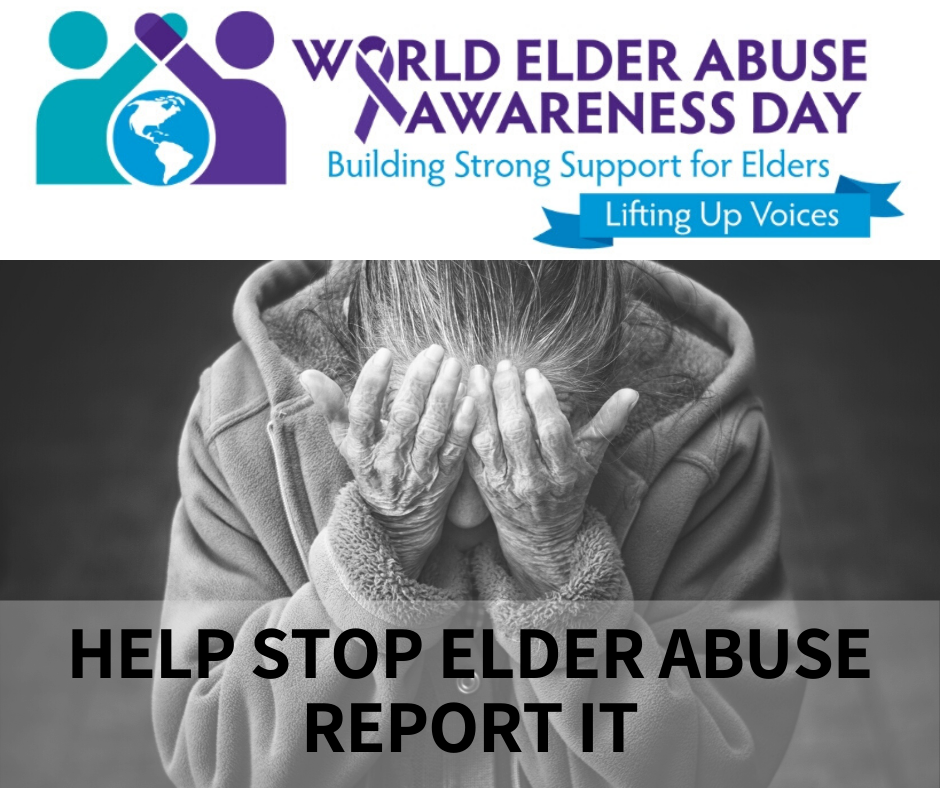Contributing Writer: Crystal Baldwin
I can’t tell you how sad the topic of elder abuse and neglect makes me. Since I was a young girl, I loved the elders in my life and maintained such deep respect for them and their life experience. Unfortunately, “each year, an estimated 5 million older adults are abused, neglected, or exploited” (ACL.gov).
Abuse is not just physical, it can be emotional and psychological, or include financial exploitation. Neglect is of grave concern, too, because in cases of neglect elders are not getting the care they need and deserve. Abusers can knowingly or unknowingly engage in such acts and may even demonstrate that they have good intentions. Abuse and neglect, no matter how it is posed, is unacceptable.
During the COVID-19 pandemic, isolation recommendations continue for those most susceptible to experience severe illness caused by the disease, including those 65 years of age and older and those with severe underlying medical conditions like heart or lung disease or diabetes (CDC). Before the pandemic, social isolation was already a concern and an issue reported to our office’s Elder Protection Initiative. Now, while those most susceptible to illness remain in isolation, abuse and neglect can continue to occur for a longer period before it is seen by a bystander and reported. Each of us must commit to protecting older adults.
Know the signs of elder abuse. The National Center on Elder Abuse has outlined the signs as follows:
Emotional and Behavioral: unusual changes in behavior, or sleep, fear or anxiety, isolated or not responsive, sadness
Physical: broken bones, bruises, and welts, cuts, sores, or burns, missing daily living aids, such as walker and hearing aids, torn or bloody underclothing, STDs without clear explanation, poor living conditions
Financial: unusual changes in bank account or money arrangement, unusual or quick changes in will or other financial documents, fake signatures on financial documents, unpaid bills
Today is World Elder Abuse Awareness Day. On this day, let’s commit to reporting elder abuse and neglect and financial exploitation when we see it. As good neighbors and compassionate people, we must report whenever we see signs of abuse and neglect. We may be the only one who sees it and the only one who can report it.

As a reporter, you are not alone, there are many agencies and organizations that are essential to eliminating elder abuse. To simplify the reporting process, the following is a list of resources.
| REPORT | CONTACT |
| Life-threatening situation | 911 |
| Suspected elder abuse, neglect or exploitation, including financial exploitation | Local Police and Adult Protective Services of the Dept. of Aging and Independent Living (800-564-1612), if about a vulnerable adult |
| Abuse of a person living in a nursing home, assisted living facility, or board and care home | Long Term Care Ombudsman of VT Legal Aid (800-889-2047) |
| Concerns regarding licensed health care facilities | Survey and Certification of the Dept.of Aging and Independent Living (888-700-5330) |
| Domestic Violence | VT Network Domestic Violence Hotline (800-228-7395) |
| Sexual Violence | VT Network Sexual Violence Hotline (800-489-7273) |
| Misuse of Social Security Benefits | Social Security Administration Office of the Inspector General (800-772-1213) |
| Medicaid Fraud and Abuse | VT Attorney General’s Medicaid Fraud Unit (802-828-5511) |
| Unauthorized Real Estate Transfers | Vermont Legal Aid (802-775-0021) |
| Broker and Investment Advisor Fraud | Dept. of Financial Regulation: Securities Division (802-828-3420) |
| Bank Fraud | Dept. of Financial Regulation: Banking Division (888-568-4547) |
| Insurance Agent, Adjuster, or Carrier Fraud | Dept. of Financial Regulation: Insurance Division (800-964-1784) |
| Scams and Identity Theft and Consumer Fraud | VT Attorney General’s Consumer Assistance Program (800-649-2424) |
If you are still not sure who to contact, call United Ways of Vermont 2-1-1 information and referral hotline (dial 211 or 802-652-4636). They are a great resource, connecting Vermonters to organizations and agencies.
More Resources:
WEAAD: World Elder Abuse Awareness Day
National Center on Elder Abuse
Videos: Strengthening the Structure of Justice to Prevent Elder Abuse by the NCEA
Elder Abuse-Learn the signs and break the silence
